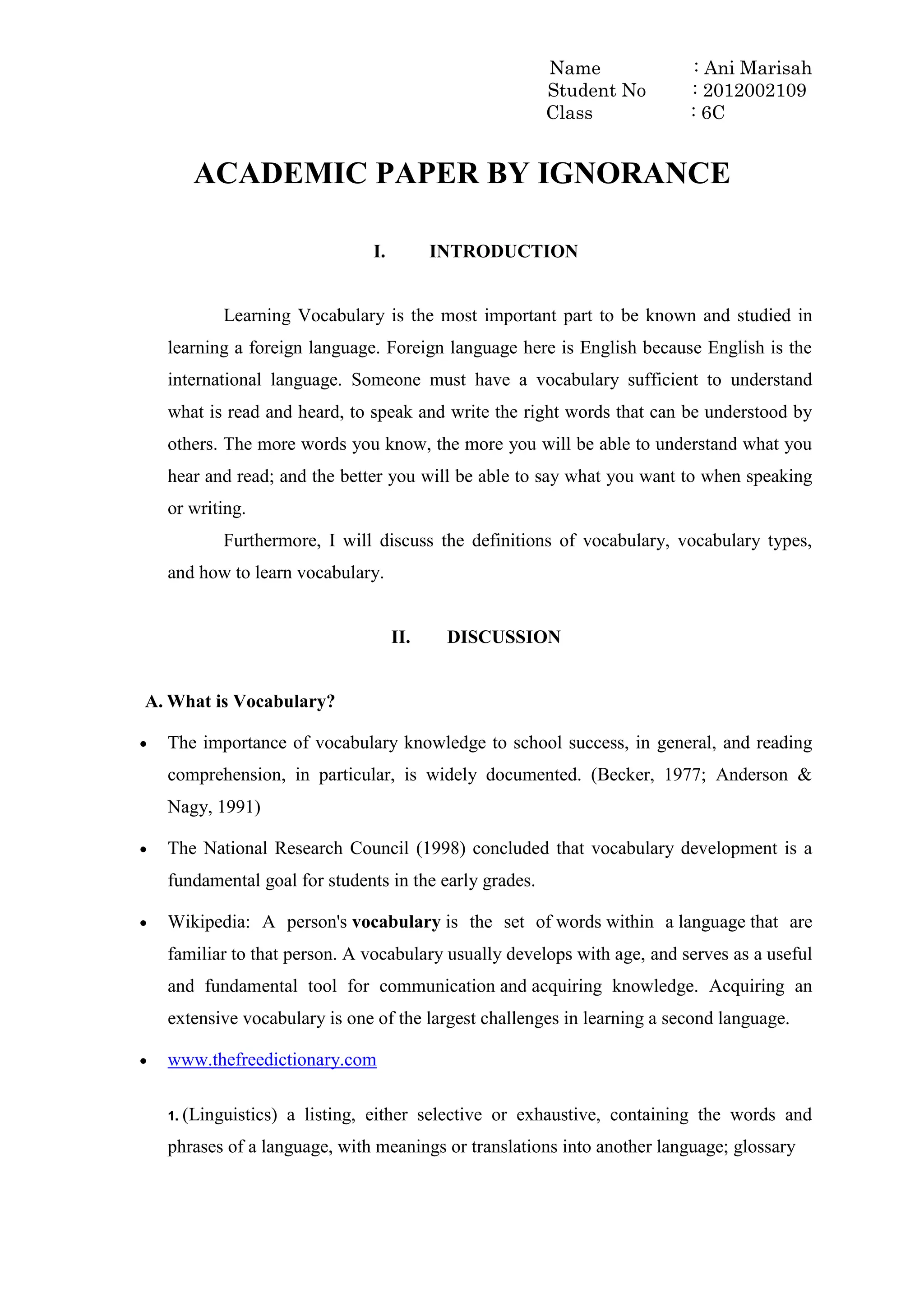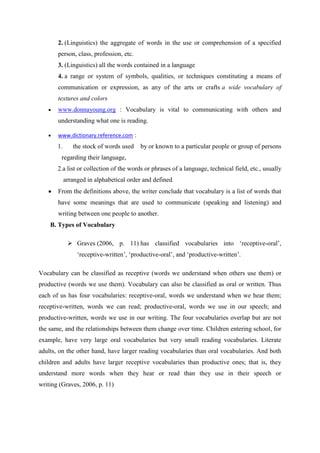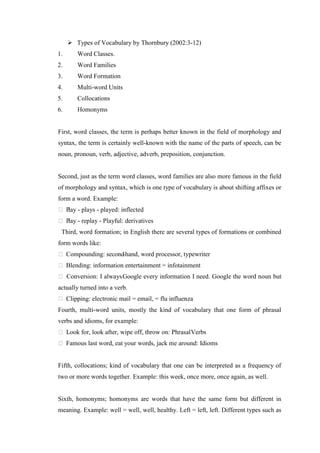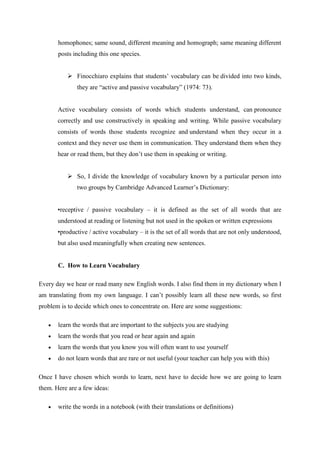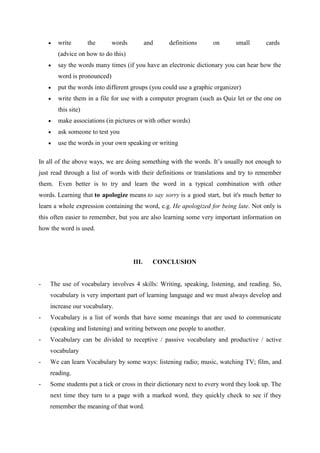1) The document discusses different aspects of vocabulary learning, including definitions of vocabulary, types of vocabulary, and methods for learning vocabulary.
2) Vocabulary can be classified as receptive (words understood) or productive (words used), and as oral or written. There are also active vocabularies that are used and passive vocabularies that are understood but not used.
3) Suggested methods for learning new vocabulary include writing words with definitions, using flashcards, saying words aloud, grouping words by topic, and using words in speaking and writing. Testing oneself and learning collocations are also recommended.
